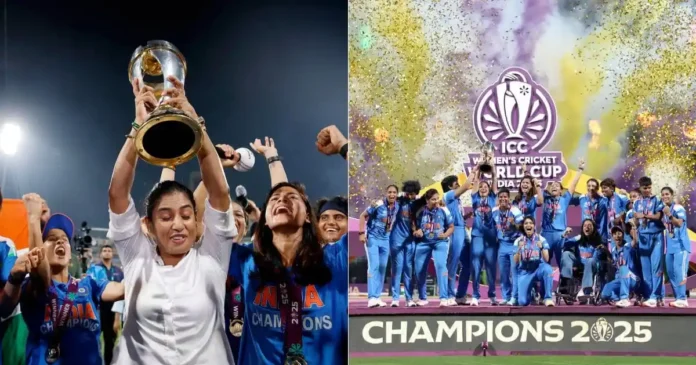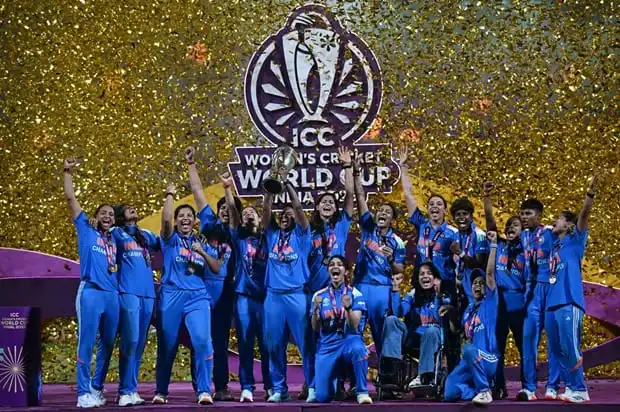
As India basks in the glow of their 2025 Women’s World Cup triumph – a thrilling 52-run smackdown of South Africa that ended years of near-misses – conversations about the game’s evolution are everywhere. And right in the mix? Mithali Raj women’s cricket fees before BCCI, a resurfaced clip that’s got fans reflecting on how far the sport has come. The legendary batter, who captained India to that heartbreaking 2005 runners-up finish, didn’t mince words in an old chat with The Lallantop: Back then, earnings were so slim it barely covered a train ticket home. If you’re piecing together the journey from peanuts to pay parity or searching “women’s cricket salaries India history,” this dive into Mithali’s revelations paints a raw picture of grit, growth, and the quiet revolution under the BCCI umbrella. It’s November 2025, and with equal fees now the norm, her story feels like a victory lap all its own.
The Viral Clip That’s Stirring Nostalgia and Outrage
It popped up amid World Cup cheers – that candid interview where Mithali peeled back the curtain on pre-BCCI days. No filters, just facts: Women’s cricket in India was a passion project, not a paycheck. In her words, straight from the heart:
“Annual contract to tha hi nahi, annual contract to BCCI ke under hi aaya hai. There was no match fees, hume koi match fees nahi tha. (There was no annual contract; annual contracts came only after we came under the BCCI. There were no match fees; we didn’t get any match fees.)”

She zeroed in on the 2005 World Cup, where India fought tooth and nail to silver but came home with pockets lighter than their spirits. Mithali recalled the payout like it was yesterday:
“If I am not wrong, jab hum 2005 runners-up the, when we came back after being runners-up in the 2005 World Cup, we were given Rs. 1000 per match. So we played about eight games. (If I’m not wrong, when we were the runners-up in the 2005 World Cup, after returning home, we were given ₹1000 per match. We had played around eight games.)”
That’s ₹8,000 total for a global showdown – enough for basics, maybe a family treat, but worlds away from the glamour we see now. The clip’s timing? Perfect. Fresh off the 2025 title, it’s a reminder that today’s stars stand on shoulders that carried the game through lean times.
Pre-BCCI Era: A Labor of Love with Barely a Living Wage
Flash back to the early 2000s: Women’s cricket was outside the BCCI’s big tent, run by the Women’s Cricket Association of India (WCAI). No central contracts meant no steady income – just sporadic gigs and sheer willpower. Travel? Economy trains, often third-class, with players pooling cash for tickets. Accommodations? Basic hostels, if lucky. And fees? A pittance that barely acknowledged the sweat.
Mithali’s not alone in these memories. Peers like Anjum Chopra have echoed how international tours felt like adventures funded by side jobs – teaching, modeling, anything to stay afloat. The 2005 World Cup payout? Symbolic of the era: ₹1,000 per match for eight games, totaling ₹8,000. For context, that’s less than a month’s rent in today’s Mumbai. No endorsements, no leagues – just the dream of equality keeping the fire lit.
This setup kept talent sidelined; many hung up their gloves early, chasing stable careers. It wasn’t until 2006, when BCCI absorbed the WCAI, that things shifted – slowly at first, with per-series stipends trickling in.
From ₹1,000 Matches to Equal Pay Glory: The BCCI Transformation
Cut to now, and Mithali Raj women’s cricket fees before BCCI tales feel like ancient history. Under BCCI, the game’s gone pro: Annual retainers (up to ₹50 lakh for top graders), series bonuses, and – the game-changer – pay equity since October 2022. Women now pocket the same match fees as men: ₹15 lakh for Tests, ₹6 lakh for ODIs, and ₹3 lakh for T20Is.
Mithali wrapped her thoughts on the leap with quiet pride:
“Wo to abhi aaya hai when we came under BCCI, to shuru hua per series, pe game and recently pay equity aayi. (That all started only after we came under the BCCI – that’s when payments began per series and per game, and recently, pay equity was introduced.)”
The 2025 World Cup win? A ₹5 crore team prize, plus individual bonuses – lightyears from those early days. It’s not just cash; it’s sustainability, drawing fresh talent and filling stadiums.
Why This Story Hits Different in 2025: Legacy, Equity, and the Road Ahead

Mithali’s words aren’t just nostalgia – they’re a blueprint. As India dominates (finally breaking the England-Australia stranglehold), her revelations spotlight the unsung grind that paved the way. Social media’s buzzing with #ThankYouMithali tags, fans sharing how these stories fuel the next gen. And with the Women’s Premier League booming, the future’s bright: More contracts, bigger broadcasts, zero tolerance for the old inequities.
It’s a full-circle moment post-World Cup – from ₹1,000 dreams to lakh-filled realities. What’s your take on this evolution? Did early fees hold back legends like Mithali, or forge unbreakable ones? Share below; let’s celebrate the queens who made it happen.
